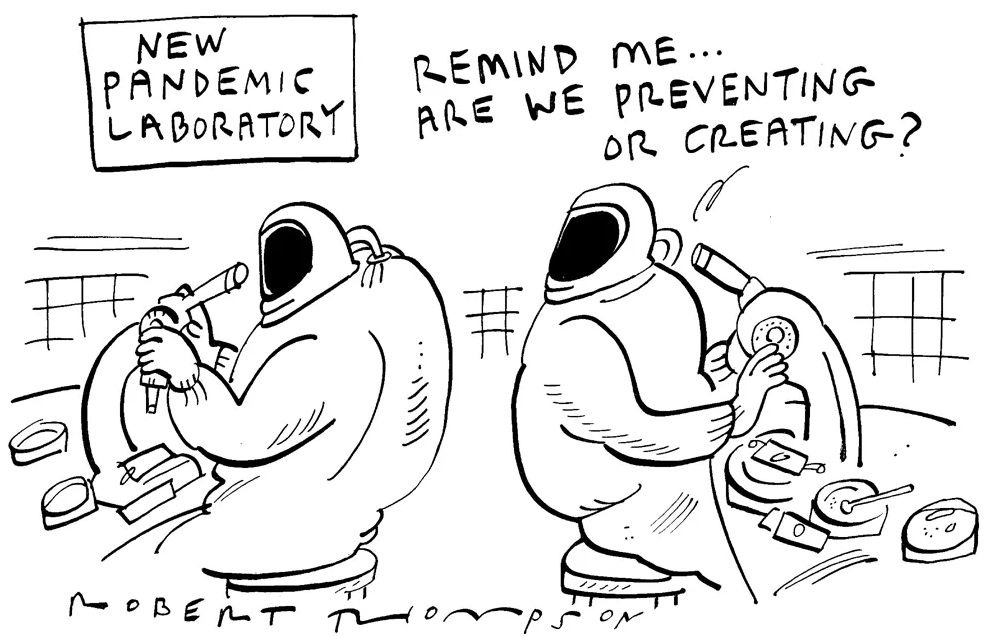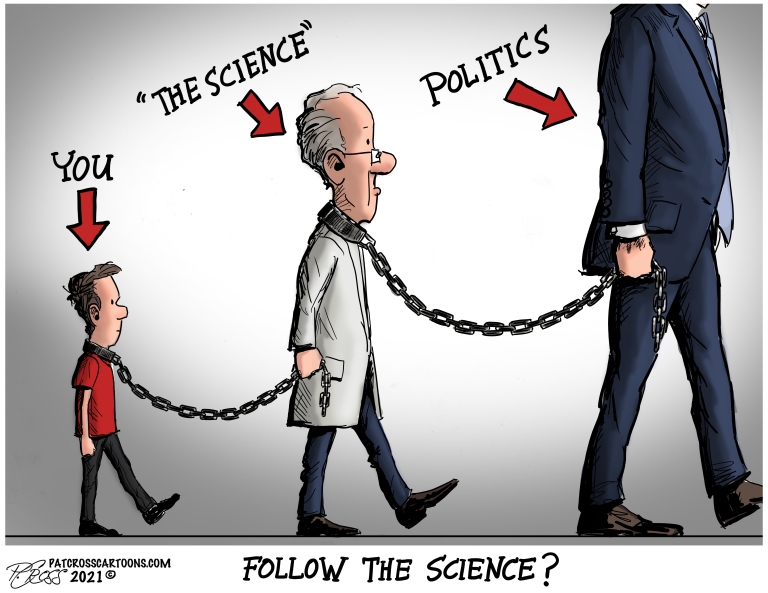In the Spectator this week Matt Ridley has an excellent piece looking at fraud in science and how the pandemic highlighted just how prevalent this is and the insidious ways it operates, bending conclusions to a preferred narrative and suppressing debate. Here’s an excerpt.
An alarming recent example is the case of the ‘pangolin papers’, four studies hurriedly published in February 2020 conveniently purporting to show that a handful of smuggled pangolins were infected with coronaviruses similar to SARS-CoV-2 in 2019. My co-author Dr. Alina Chan of the Broad Institute of MIT and Harvard soon spotted that all four relied on data that had already been published the previous year, and one paper had simply re-described four biological samples under new names.
It took the journal Nature six months to print a correction to that paper, in which the authors confessed to multiple errors. By then, the pangolins had done their job through the media to get the public thinking a natural source of the virus had been found – when it had not. (A couple of pangolins might have been infected somehow, but with a different virus.) The editors at Nature were either not bothered, or realised that the longer they stalled, the less attention there would be on how they had mismanaged the papers.
As this example shows, the real scandal in science is not the criminal frauds, of which there are always a small number, nor the data dredging and fire-hose publishing, but the gate-keeping, groupthink and bias that politicises some fields of science, turning it into the dogma known as ‘the science’. The pandemic provided a glimpse of just how far senior scientists will go to bend conclusions to a preferred narrative and suppress debate.
On the efficacy of masks, whether the Covid vaccines prevented transmission, the effectiveness of lockdowns and the accuracy of epidemiological models and other issues, the scientific establishment proved willing to suppress alternative views. The sceptics on these points were not necessarily all right, but they deserved to be heard.
“In retrospect, maybe it wasn’t so smart to hand the keys of public health over to mad-scientist virologists, hypochondriacal epidemiologists and megalomaniacal science bureaucrats,” tweeted Professor Jay Bhattacharya of Stanford Medical School recently. He was one of the authors of the Great Barrington Declaration, calling for focused protection rather than society-wide lockdowns. Regarding that declaration, “There needs to be a quick and devastating published take down of its premises,” wrote Francis Collins, head of the National Institutes of Health, to Anthony Fauci, head of the National Institute of Allergy and Infectious Diseases, in October 2020. “Is it under way?” It was.
The most shocking case concerns the ‘Proximal Origin’ paper that shut down the debate on the origin of COVID-19 for the best part of a year. Published by Nature Medicine in March 2020, it ruled out “any type of laboratory-based scenario”, deceiving me and many others. Emails and Slack messages released by a congressional subcommittee last month show how the five authors of the paper thought in private that several types of laboratory-based scenarios were indeed possible, even “friggin’ likely”.
They continued to think this secretly even as they drafted their paper, edited it in response to pressure from “higher ups” and journal editors to make what it said even more dogmatic, then published it and responded to media inquiries, while celebrating its influence. The lead author astonishingly told Congress two weeks ago that publishing one view while thinking the opposite is “simply the scientific process”. But the fact that the heads of their main funding agencies were part of the conversation, even suggesting edits, and were keen to (in Collins’s words) “put down this very destructive conspiracy” seemingly influenced what they wrote.
Last month 47 scientists wrote a letter to the editor of Nature Medicine requesting retraction of the Proximal Origin paper, and arguing that “the authors’ statements show that the paper was, and is, a product of scientific misconduct”. So far the editor, Joao Monteiro, has refused to consider retraction, arguing that it was just an opinion piece, despite the fact that it was peer-reviewed and hailed as a case-closing study.
Worth reading in full.












To join in with the discussion please make a donation to The Daily Sceptic.
Profanity and abuse will be removed and may lead to a permanent ban.
Anyone who pays £199 pa for a subscription to Nature deserves all they misinformation they get for their money.
Fraud? Sounds more like evil to me
The simply the scientific process statement is very telling. The scientific process is obviously that – regardless of any private opinions of people who do The Science[tm] for a living – work on The Science[tm] needs funding and hence, the sciencers must deliver whatever those who are willing to fund their sciencing want. Only naive people believe sciencing would be an open-ended quest to determine true information about natural phenomena. It’s really about fabricating justifications for political goals those who fund sciencing want to achieve. Preferably with lots of math and tables in them so that laymen both end up suitably impressed and rendered incapable of asking unwelcome question like Is the emperor really clothed?
Yes, giving good slide is essential for masking the truth
The NIH doles out $billions each year in grants to private pharma companies. These same companies give back $millions to NIH scientists as royalties (kickbacks) for inventions these scientists created while at work in NIH labs. Legalised bribery.
The standout message for me is the inefficiency of peer review, whether accidental or deliberate. I have a plan. ALL papers should first appear in preprint and be available for anyone to examine. Then any and all informed analysts can dissect work before it gains the imprimatur of full publication. At present the system only allows post hoc comment, from where the taking down of a paper is far more difficult.
This is such a brilliant idea (I would say that of course) that it will never be adopted.
ISTR a retired editor of “The Lancet” saying that in his (long) experience over 90% of fully peer-reviewed papers eventually proved to be wrong – and a depressing percentage proved to be fraudulent.
In reality, “Peer Review” is no better than allowing students to mark their friends’ exam papers.
The Corruption of science for political purposes. ———We no longer have “Science”. It has morphed into “Official Science”. ——–Scientists working for governments have now become an army of data adjusters providing the excuses for government policy on everything from climate to covid. ———-“Ah yes, science. One gets such wholesale returns of conjecture from such a trifling investment of fact” –Mark Twain. —And boy do governments know that and why they seek to convince us all that since all scientists agree then so should you.
$cientists are now down there with Politicians, Lawyers and Estate Agents in the “honest and trustworthy” stakes.